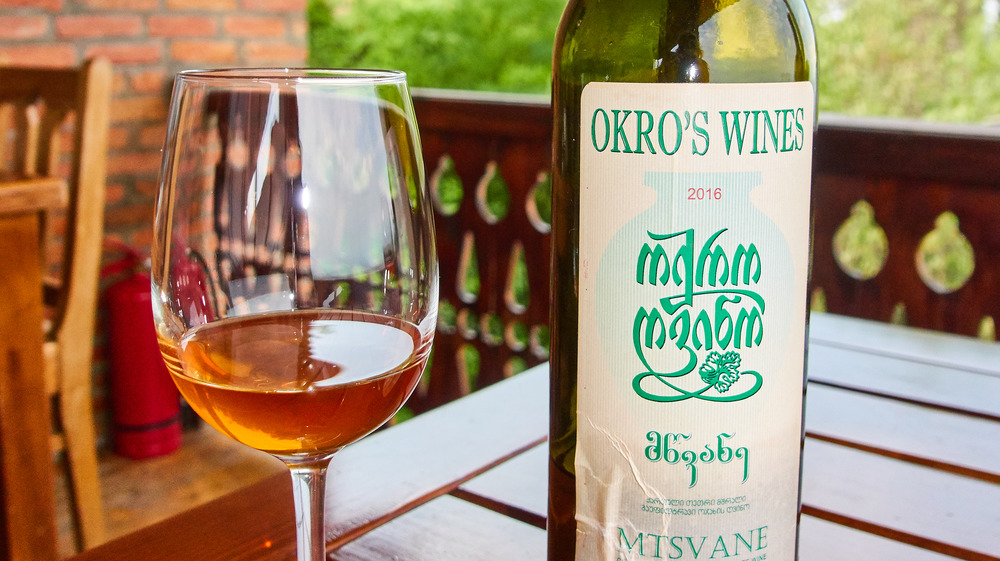Why Is Orange Wine Becoming So Popular?
We may receive a commission on purchases made from links.
Red... white... rosé... orange?
Yep, you read that right. You may have never heard of it, but orange wine is making a name for itself in the world of enology — and for plenty of good reasons. The sunshine-colored vino, also commonly known as skin-contact wine or amber wine (via Wine Enthusiast), is praised by knowledgeable sommeliers and ordinary wine drinkers around the globe. Its rise in popularity is a result of its unique process, dazzling hue, and hybrid taste.
Contrary to popular belief, orange wine does not contain any trace of the citrus fruit of the same name. According to Wine Folly, orange wine is a variety of white wine that's made by leaving the skins and seeds in contact with the juice. This process simply creates an orange-colored liquid product, hence its name. And to bust yet another myth: This seemingly up-and-coming wine category is anything but new. According to MasterClass, the orange winemaking process is about 8,000 years old!
How, exactly, do orange wines differ from the classic reds, whites, and rosés on the menu? Orange wines have been described as having a bold, tart, fruity flavor with a drier mouthfeel. Some have compared its taste and texture to that of some sour fruit beers (via Wine Folly).
How is orange wine made?
Wine experts have determined that orange wine originated where the country of Georgia sits today, according to The Takeout. Since it was first discovered, orange wine has traditionally been buried underground to ferment in large clay vessels, called qvevri.
To put it simply, orange wines are essentially white wines that are made like red wines. Reds are typically made by fermenting the grape juice with the skins, whereas whites are made without the skins. The skin contact (or lack thereof) is what gives wines their ultimate color, per The Takeout. To make orange wine, MasterClass explains that white grapes are crushed, then soaked in their skins and stems for one week or up to an entire year. Finally, the fermented juice (aka wine) is separated from the skins.
According to Eataly, most orange wines exude sour aromas and mellow, earthy flavors. In fact, the longer the skins remain on the grapes during the fermentation process, the stronger it will taste. The deep tannin notes commonly associated with red wine are combined with the crisp acidity or "bite" of white wines. Because of all this, orange wines taste quite different from conventional white wines, making them an enjoyable sipper. They pair extremely well with your favorite fall foods (like squash), charcuterie, olives, and strong cheeses, recommends Tasting Table.
Oh, and if you ever want to read more about this magical boozy beverage in your leisure time (perhaps even while sipping on a glass), there's an entire book written about it. Cheers!

